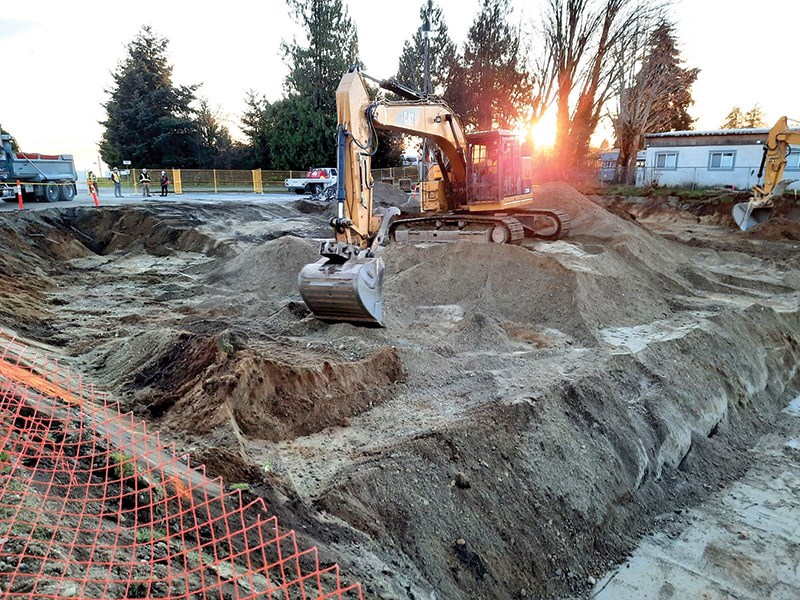Excavators broke ground Dec. 2 for a six-storey mixed-use development in Sechelt, which hiwus (Chief) Warren Paull described as “a significant milestone for the Nation.”
But for B.C. Attorney General and Housing Minister David Eby, it represents something else.
In a release announcing the start of the construction phase of the project, Eby said the B.C. government “is proud to partner with the shíshálh Nation to make Our House of Clans a reality,” before calling out the government of Canada for failing to provide adequate resources for Indigenous housing.
“Although a project like this falls under federal responsibility, the federal government’s ongoing neglect and delay related to on-reserve housing in our province is an embarrassment for British Columbians and a barrier to reconciliation,” he said.
Coast Reporter reached out to federal Indigenous Services Minister Marc Miller but did not receive a response before deadline.
The $6.8-million in provincial funding for the project was secured through BC Housing’s Indigenous Housing Fund, which has committed to spending $550 million over 10 years towards 1,750 units of Indigenous social housing projects both on and off-reserve.
The Our House of Clans project was initially awarded the funding in 2018, the same year the program put out its first request for proposals.
The project – a joint venture between the Nation, its economic arm tsain-ko, tsain-ko Housing Society and BC Housing – is expected to be completed by late spring 2022.
“It is a project that demonstrates what can be accomplished for our people when all parties choose to work together toward the shared goal of reconciliation, safety and care for our elders and most vulnerable,” Paull said in a Dec. 10 release.
Nearly every construction company owned by a Nation member has been hired as a sub-contractor for the project, according to tsain-ko’s director of projects, Jason Jenkins, and a Nation member has been hired for a new position – construction safety officer.
The building, located on 5573 Sunshine Coast Hwy., in the vacant lot between Big Mac’s and Raven’s Cry Theatre, will be composed of 34 rental units for Nation members with underground parking, amenities, and 700 sq. metres (7,500 sq. feet) of leasable space.
Community Futures has an intent to lease a large portion of that space – about 440 sq. metres (4,700 sq. feet) – for a “non-profit innovation centre.”
While both Paull and Eby described housing as a means towards reconciliation, the location itself is meant to symbolize that work, also.
The building, which will sit on the former site of the St. Augustine's Indian Residential School, will feature artwork from several shíshálh Nation members and an exterior “reconciliation plaza” and gathering area.
Murray Rankin, B.C.’s Minister of Indigenous Relations and Reconciliation, described the transformation of the space from a residential school site to affordable housing for the Nation as “a meaningful step forward for reconciliation.”
“Through partnerships like these, together we can support the health and well-being of shíshálh members and elders, while always remembering the past, promoting healing and honouring residential school survivors, their families and communities,” he said.
Shíshálh Nation master carver ?antuni Tony Paul has been working on a totem entitled, “Carving Tears into Dreams of Reconciliation” that will anchor the plaza.
The syiyaya Reconciliation Movement – a grassroots community organization – has contributed towards the pole and worked with Paul to bring the community into the carving process.
The name, Our House of Clans, honours the five clans of the shíshálh Nation people – Bear, Frog, Orca, Wolf and Eagle.



